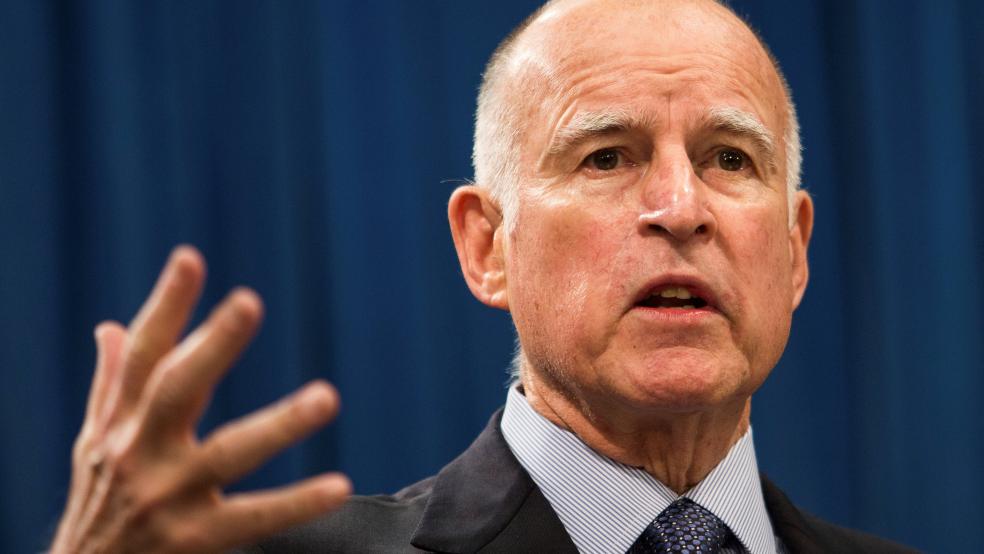While the U.S. is enjoying stock market highs and steady GDP growth, the current economic expansion — which is currently in year 10 — can’t last forever. Many economists predict the next recession could come as soon as 2020.
That’s bad news for some states that still don’t have their fiscal house in order. Though it is hard to predict which sectors will be first affected by the next downturn, some states will inevitably face far bleaker prospects than others.
Which states?
New Jersey, Illinois, Connecticut and California, for starters.
Why? Heavy debt loads, inability to balance budgets and high borrowing costs, to name a few major problems.
These states have struggled to pass balanced budgets even when the economy is doing well. Recent research from the Pew Charitable Trusts shows that New Jersey and Illinois have both failed to pass a balanced budget for each of the past 15 years, while Connecticut has failed to do so in 11 of the past 15 years. California has failed nine of 15 times.
Persistent deficit-spending means that most of these states also have less-than-adequate reserves in their “rainy-day funds” to supplement future budget shortfalls.
Illinois and New Jersey had essentially no money put away in their rainy-day funds at the end of the most recent fiscal year. In Illinois, reserves are so low that the state has enough money to cover just 81 seconds worth of state spending; Connecticut fared only slightly better, with five days’ worth of state spending in its reserve.
Deficit spending coupled with a lack of rainy day funds is only made worse by massive unfunded liabilities — and California, Connecticut, Illinois and New Jersey have substantial unpaid bills.
Connecticut, Illinois and New Jersey are the three most indebted states, measured as debt per taxpayer. California has the highest debt levels, owing nearly $370 billion in 2017. The primary drivers of indebtedness are required pension payments and retiree health-care benefits.
All of this bad fiscal management has consequences. The combination of enormous debt burdens and depleted rainy-day funds has led to Illinois’ credit rating being downgraded 21 times since 2009. The state has the worst credit rating in the nation, one notch above junk, while the other states aren’t too far behind. This has major consequences — namely, that Illinois will have an incredibly difficult time borrowing money when times are tough, and lenders will be able to charge exorbitant interest rates on money loaned to the state, meaning the tab for Illinois taxpayers will grow.
Because these states struggle to find enough revenue to cover their expenses, and outstanding debt obligations make it difficult to prioritize spending during downturns, their state governments are not in a strong position to bear the brunt of the next recession. And when the money runs dry, state officials won’t be able to count on the federal government to bail them out, as has happened in the past during downturns.
The federal government has already utilized two of the three typical policy prescriptions — deficit spending and tax cuts — to stimulate national economic growth. Despite record government spending combined with corporate tax cuts, the U.S. is seeing tepid economic growth, persistently low real interest rates and meager inflation compared to long-run averages.
The third approach — targeting lower interest rates by the Federal Reserve — might not offer much relief, either since interest rates are already historically low.
So what are troubled states to do? The men and women at the helm need to get to work on reforms to encourage financial responsibility while the economic expansion is still taking place.
Most simply put, this means balancing their budgets and setting money aside in a rainy-day fund so there are reserves when revenue takes a dip. But a one-off balanced budget won’t be good enough. Problem states have to gain the political will to reform the biggest cost-drivers of their financial woes, such as pensions.
Without reform, services that taxpayers need most — education, health and human services — could see drastic cuts in the midst of the next recession.
No one can predict the start date or severity of the next downturn, but that won’t stop it from coming. States like California, Illinois, New Jersey and Connecticut would be wise to take preventive measures now, while they still can.
Orphe Divounguy is the chief economist for the Illinois Policy Institute, a Chicago-based think tank that promotes free markets and limited government.





